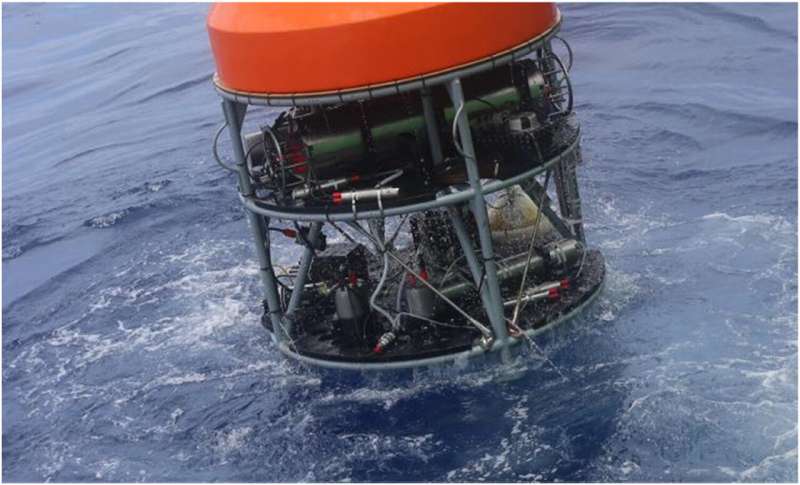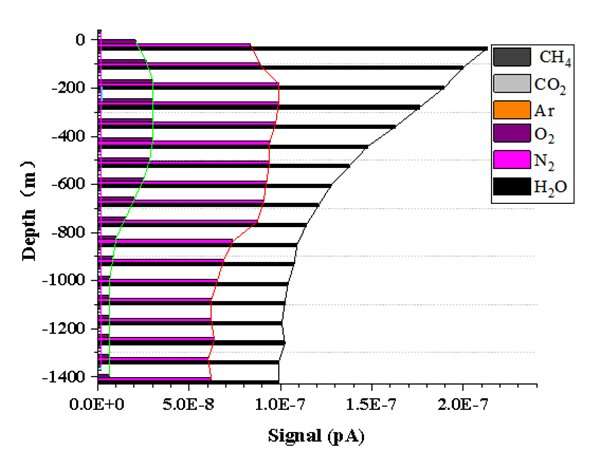This article has been reviewed according to Science X's editorial process and policies. Editors have highlighted the following attributes while ensuring the content's credibility:
fact-checked
trusted source
proofread
Underwater mass spectrometer developed for deep sea exploration

A research team led by Prof. Chen Chilai from the Hefei Institutes of Physical Science of the Chinese Academy of Sciences has developed a deep-sea mass spectrometer. It has completed several sea trials in a specific area of the deep sea.
The extreme environment of the deep sea has shaped unique biological processes and harbors significant mineral resources, the detection of which is a frontier issue in international Earth science research. Deep sea in-situ detection technology allows continuous acquisition of information on the components, concentrations and variations of deep-sea samples in both temporal and spatial dimensions. Therefore, it is increasingly being used in extreme deep-sea environments.
In this study, the deep-sea mass spectrometer worked continuously and reliably for more than eight hours under simulated water depths of -5,800 meters. It achieved long-term (25.8 hours) in-situ detection of dissolved gases in the cold seep region of the deep sea and online detection of dissolved gases from the sea surface to the seabed (-1,388 m to 0 m).
This allowed the researchers to obtain important scientific data, such as the temporal variation curve of the concentration of small molecular dissolved gases and the vertical concentration distribution profile in the deep-sea seabed. The results were published in Chinese Journal of Analytical Chemistry.

This technology is not only applicable to deep-sea exploration but also to the acquisition of dissolved gas information in inland rivers, lakes and near-shore waters. Relevant research in this area is also underway.
"We have been committed to the research of key technologies and applications of mass spectrometry," said Prof. Chen. "The development of this deep-sea mass spectrometer paves the way for the study of the origin and early evolution of life, as well as the study of global climate change."
More information: Han Wang et al, Development and application of an underwater mass spectrometer for in situ detection of deep-sea dissolved gases, Chinese Journal of Analytical Chemistry (2023). DOI: 10.1016/j.cjac.2023.100299
Provided by Chinese Academy of Sciences





















